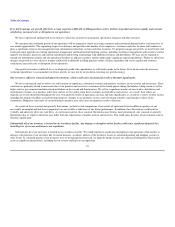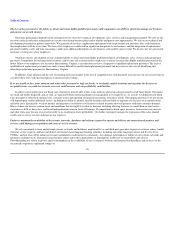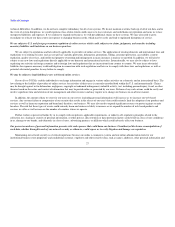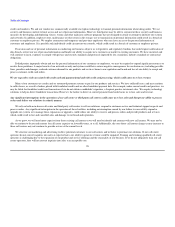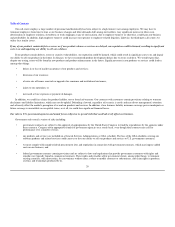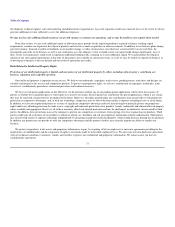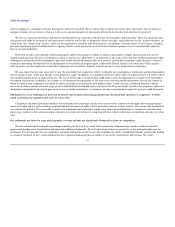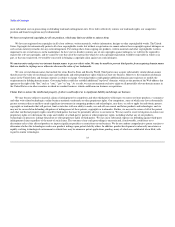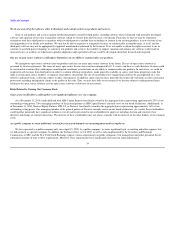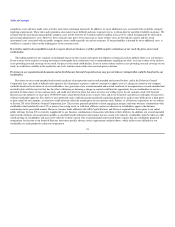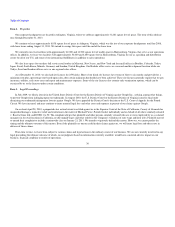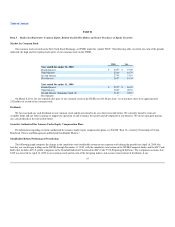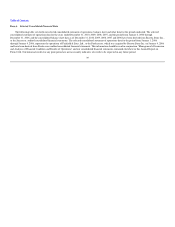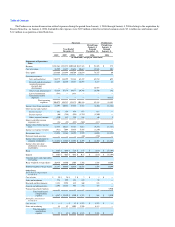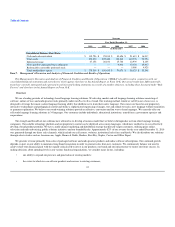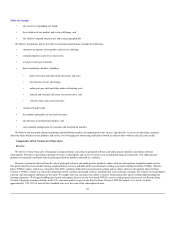Rosetta Stone 2010 Annual Report Download - page 36
Download and view the complete annual report
Please find page 36 of the 2010 Rosetta Stone annual report below. You can navigate through the pages in the report by either clicking on the pages listed below, or by using the keyword search tool below to find specific information within the annual report.
Table of Contents
We do not own all of the software, other technologies and content used in our products and services.
Some of our products and services include intellectual property owned by third parties, including software that is integrated with internally developed
software and a portion of our voice recognition software, which we license from the University of Colorado. From time to time we may be required to
renegotiate with these third parties or negotiate with new third parties to include their technology or content in our existing products, in new versions of our
existing products or in wholly new products. We may not be able to negotiate or renegotiate licenses on commercially reasonable terms, or at all, and the
third-party software may not be appropriately supported, maintained or enhanced by the licensors. If we are unable to obtain the rights necessary to use or
continue to use third-party technology or content in our products and services, the inability to support, maintain and enhance any software could result in
increased costs, or in delays or reductions in product shipments until equivalent software could be developed, identified, licensed and integrated.
Our use of open source software could impose limitations on our ability to commercialize our products.
We incorporate open source software into our products and may use more open source software in the future. The use of open source software is
governed by license agreements. The terms of many open source licenses have not been interpreted by U.S. courts, and there is a risk that these licenses could
be construed in a manner that could impose unanticipated conditions or restrictions on our ability to commercialize our products. In such event, we could be
required to seek licenses from third parties in order to continue offering our products, make generally available, in source code form, proprietary code that
links to certain open source modules, re-engineer our products, discontinue the sale of our products if re-engineering could not be accomplished on a cost-
effective and timely basis, or become subject to other consequences. In addition, open source licenses generally do not provide warranties or other contractual
protections regarding infringement claims or the quality of the code. Thus, we may have little or no recourse if we become subject to infringement claims
relating to the open source software or if the open source software is defective in any manner.
Risks Related to Owning Our Common Stock
Some of our stockholders could together exert significant influence over our company.
As of December 31, 2010, funds affiliated with ABS Capital Partners beneficially owned in the aggregate shares representing approximately 25% of our
outstanding voting power. Two managing members of the general partner of ABS Capital Partners currently serve on our board of directors. Additionally, as
of December 31, 2010, Norwest Equity Partners VIII, LP, or Norwest, beneficially owned in the aggregate shares representing approximately 16% of our
outstanding voting power. One managing member of the general partner of Norwest currently serves on our board of directors. As a result, these stockholders
could together potentially have significant influence over all matters presented to our stockholders for approval, including election and removal of our
directors and change of control transactions. The interests of these stockholders may not always coincide with the interests of the other holders of our common
stock.
As a public company we incur additional cost and face increased demands on our management and key employees.
We have operated as a public company only since April 15, 2009. As a public company, we incur significant legal, accounting and other expenses that
we did not incur as a private company. In addition, the Sarbanes-Oxley Act of 2002, as well as rules implemented by the Securities and Exchange
Commission, or SEC, and the New York Stock Exchange, impose various requirements on public companies. Our management and other personnel devote
substantial amounts of time to these requirements. Moreover, these requirements have significantly increased our legal and financial
34



